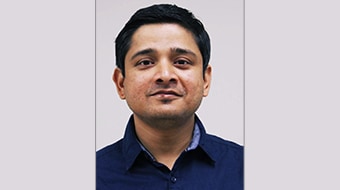Courts are public spaces, and they cannot be converted into “fortresses” preventing people from accessing them, the Supreme Court observed on Friday, as it heard a clutch of petitions demanding increase in security across court complexes in the country and a specialised force to safeguard judges, lawyers, litigants and witnesses.

“Courts are ultimately public spaces. We can’t turn courts into fortress. Look at this court (Supreme Court). It’s one thing to say that the court is an open court since we provide access through video-conferencing. But if someone wants to come to watch proceedings, it’s nearly impossible for a common man to enter,” said a bench of justices S Ravindra Bhat and Dipankar Datta.
The bench emphasised that there has to be a “balanced” approach that looks at security and access depending on the need since “one-size-fits-all” cannot work in the matter.
“Not all judges may need security. We also travel by public transport. Judicial officers car-pool to work. There could be peaceful areas too. You must collect material and show us the problem areas. We cannot jump on conclusions based on one or two incidents…We don’t want rhetoric. We want facts,” the bench told the lawyers appearing for the batch of petitions.
The court added that it cannot assume that the State has no acted pursuant to certain ill-fated incidents, including a bomb blast that took place near the parking lot of the Delhi high court complex a decade ago, and thus, it needs to be shown the areas where improvements in the security apparatus are still wanting.
“Why assume that the State is not doing its duty. We have to ultimately see what’s achievable and what’s not. It’s certainly a matter concerning all of us but the thing is that we have to realise where the problem areas and work are on them…Where you think there is lawlessness or actual threat,” the bench told the lawyers.
On his part, advocate Rajat Nair, representing the Union government, informed the bench that there is already a mechanism in place to ascertain the threat perception of judges and provide security accordingly.
At this point, senior counsel Manan K Mishra, who appeared for the Bar Council of India, complained that there have been routine incidents of lawyers getting murdered while the Centre is silent on the need of a law to protect them.
But the bench replied: “Give us a list. We don’t know the facts. Is it connected with his profession or otherwise. How do we know? If there are threat perception in particular cases, it is for the concerned bar and the lawyer to approach the district judge for protection. That system is already there…We cannot strain the resources of every state and Centre. There are several sections of society that don’t have the security and that may not need it. We will also be diverting it from those who may actually need it. We will have to be very sensitive to it.”
The bench then adjourned the matter for six weeks, asking the lawyers to collate details of their grievances and adduce it before the court for seeking specific directions.
In its August 2021 affidavit, the Union government maintained that there is no need to have a national-level security force to protect judges and court precincts, adding constituting a dedicated unit nationally for the protection of judges is “neither advisable nor practical”.
Responding to a PIL filed by Karunakar Mahalik through advocate Durga Dutt, the court was at that time informed that there are guidelines issued by the Union ministry of home affairs (MHA) to all the states and Union territories in 2007 and reiterated in 2020 for creating special units within the state police forces. It pointed out that ‘public order’ and ‘police’ come within their purview of state governments and that the purpose would be served by creating a concerned branch within state police.
The MHA affidavit was filed when the top court heard the 2019 PIL by Mahalik along with a case registered by the court suo motu (on its own motion) in the wake of the death of additional district and sessions judge Uttam Anand, who was fatally knocked down by a vehicle in July 2021 in Jharkhand’s Dhanbad. The suo motu case has since been transferred to the Jharkhand high court.







